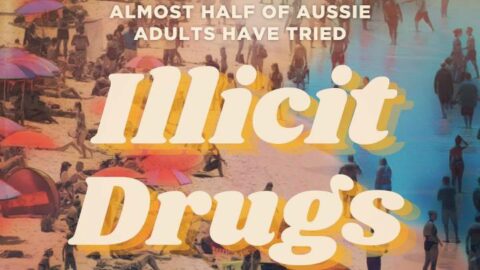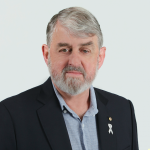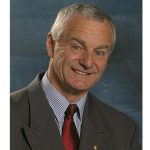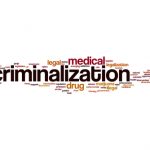Decriminalising Drugs to Save Lives: An Interview With Reason Leader Fiona Patten
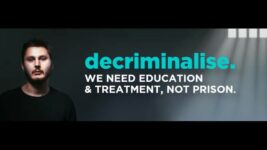
“The global war on drugs has failed, with devastating consequences for individuals and societies around the world,” declared the Global Commission on Drug Policy, in its June 2011 report. And the commission holds serious weight being made up of leading intellectuals and former heads of state.
Portugal was ahead of the game in this sense. At the turn of the century, when 1 percent of its population was heroin dependent, the Sampaio government decriminalised the personal possession and use of all illicit substances and upped investment in drug treatment.
Two decades later and drug-induced deaths in that country are some of the lowest in Europe, as are drug-related HIV infections, while the use of illicit substances has not spiked.
Yet, in Australia, unbeknownst to most, over the last two decades more than 35,000 people have lost their lives to drug overdose.
So, Reason Party leader Fiona Patten has just introduced a piece of legislation into Victorian state parliament that’s designed to steer people who use drugs away from the criminal justice system and toward treatment and education, as she asserts it’s time to “reduce harm and save lives”.
Evidence-based harm reduction
Patten introduced her Drugs, Poisons and Controlled Substances Amendment (Decriminalisation of Possession and Use of Drugs of Dependence) Bill 2022 into the Victorian Legislative Assembly on 23 February.
“Of drug arrests in Victoria, 93.5 percent are consumer arrests, as compared to 6.5 percent supplier arrests,” the Reason MLC noted in her second reading speech. “Of the 32,860 drug arrests in Victoria last year, 26,195 – or just on 80 percent – were for the offences of drug use or possession only.”
The bill would amend the Drugs, Poisons and Controlled Substances Act 1981 (VIC) (the Act), so that personal possession and drug use would be dealt with via a system of drug education and treatment notices, reflecting that drug use is a health issue and not a crime.
The Reason Party leader also outlines the benefits to those on the frontline of the war on drugs: people who use illicit substances. Decriminalisation steers them clear of the criminal justice system, it removes the associated stigma of drug use, and this opens up greater pathways to treatment.
Progressive change
With the long-term success of the Portuguese decriminalisation model, the harm reduction approach is increasingly being seen as the way forward. The US state of Oregon established its decrim system in February last year, while the ACT is also considering such a bill.
Drug decriminalisation is a hard sell, precisely because of the misinformation propagated around prohibition over the last century.
However, Patten has a skill in forging change, as she brought about voluntary-assisted dying laws in her state, and more recently she saw sex work decriminalised.
Sydney Criminal Lawyers spoke with Reason Party leader Fiona Patten about the harms associated with treating drug use as a crime, the benefits of her treatment and education alternative, and the sizable reduction her laws would bring to the backlogs of the Victorian court system.

The statement “the war on drugs has failed” has become quite common over the last decade. Calls for drug decriminalisation have been growing in the community. However, for some, the idea still sounds dangerous and irrational.
Fiona, why are you advocating for drug decriminalisation?
I agree with the people who say the war on drugs has failed. I would also like to add that it has been a war on people, and on humans – on vulnerable humans.
It hasn’t been a war on the drug cartels. In fact, this has been extremely profitable for the cartels, for drug traffickers, for illicit drug manufacturers.
We have to do something different, and the evidence shows us that if we treat drug use as a health issue, we can find far better solutions that help people, rather than harm them.
Your Decriminalisation of Possession and Use of Drugs of Dependence Bill involves proposed new section 73A and amended section 75 of the Drugs, Poisons and Controlled Substances Act.
Broadly speaking, what sort of system would your bill bring into play?
One of the problems with the word decriminalisation is that it’s largely misunderstood. Decriminalisation doesn’t mean legalisation, and people need to be clear on this.
In fact, if you look at how I’m amending those sections, it’s not actually decriminalisation in its purest form.
Possession and use still remain an offence, or be it, a summary offence with one penalty unit. So, they remain an offence.
What this changes is the police reaction to when they find someone using drugs or in possession of a small quantity.
Small quantities are already defined in schedule 11 of the Act. So, we don’t have to do anything about those amounts.
What we are doing is providing police with a new measure to use. So, when police do find someone in possession of a personal quantity or using drugs, then they’ll be issued with a drug education or treatment notice.
This will be a compulsory notice, so noncompliance with the notice may mean charges follow.
But this will provide a health intervention, where, up until now, the only intervention that police have had has been a criminal intervention.
You’ve just mentioned the education and treatment notices. The bill inserts new division 3 into part 5 of the Act to establish a framework for these.
Drug harm reduction advocates often make the claim that most people in our society who use drugs don’t develop problematic use or dependence.
So, does the system you’re proposing make this sort of distinction?
That’s a really good point, and a really good distinction, because you’re right: most people who use illicit drugs do not end up having a problem with that use.
So, this would certainly be a triage model, where that first phone call will ascertain what type of course should be taken.
In the case of drug education, it will provide better understanding of the effects of alcohol with MDMA, or a better understanding of the effects of ketamine with cocaine, etc.
It would be about providing people with what’s entirely lacking in our community, possibly some of the best drug education that they have had.
So, then we can ensure if they do continue to use illicit drugs that they’re fully aware of the harm and the impact those drugs have on their bodies.
However, what we know is that with a lot of people who end up with problematic drug use, there were probably a number of times in their lives that we could have intervened but didn’t.
But when we did intervene, we gave them a criminal record for possession, and it actually set them back.
It didn’t set them forward. It didn’t send them to a place to seek treatment. It probably impacted on their lives negatively and had the reverse effect and they ended up using more drugs.
So, we know that the most dangerous thing about drug use is actually getting caught up in the criminal justice system.
Once you’ve brushed up against the criminal justice system, the chances of you brushing up against it again are exponentially increased.
So, let’s keep people away from the criminal justice system.
Systems of drug decriminalisation already operate in other jurisdictions globally. Portugal is the most well-known. In your understanding, how are other models operating?
In some jurisdictions, it’s police discretion and there’s an understanding or a policy put in place that while criminal penalties remain, police are requested to take a health intervention course, so they don’t proceed with criminal charges. There are places in the UK where that system is in place.
There are other places where use and possession lead to no sanctioning. We can look to Oregon for that, where there’s no sanctions. There are also places where decriminalisation is met with an on-the-spot infringement notice.
What they all have in common is trying to keep people out of the criminal justice system, and in Victoria, 26,000 people were arrested last year for possession or use of drugs – 26,000 people.
We don’t know the life stories of those 26,0000 people, but we do know that most of them are young. There could be a whole bunch of reasons why a person has been using or is using in a public place.
A criminal intervention may actually change the trajectory of that person’s life.
We know that when people come across the justice system, they don’t end up in gaol the first time. They probably don’t end up having a problem with drugs in that first instance. But it can send them on a path.
So, this is about having that early intervention, and we’ve seen the success in Portugal, where the stigma around drug use has declined, and that leads to people being more willing to seek help.
Lately, we’ve seen the Royal College of GPs and the Royal College of Physicians coming out in favour of a health approach to drug use to reduce that stigma to enable people, when they’re feeling like they have a problem, to seek help.
It’s also even being able to ask questions about whether a drug affects other medications someone may be using, so if there’s an entourage effect between MDMA or antidepressants, or cocaine and some other form of medication that someone might be taking.
Those more open and honest conversations can be had at all levels.
Besides the positive changes the bill provides people who use drugs in preventing criminal charges and opening up access to health services, you point to the benefits this legislation would bring to the criminal justice system.
Can you talk on that?
Twenty six thousand cases don’t need to go through the Magistrates Court. Possession is the third largest offence that’s dealt with by magistrates.
Imagine how we could improve the Magistrates Court and our justice system by removing 26,000 people out of it.
That would have a substantial effect, and it would also have a substantial effect on people who, in some cases, are languishing on remand waiting for their cases to be finalised.
In Victoria, we’ve become an outlier. We’ve seen huge increases in people sitting on remand in our prisons, quite often because of backlogs in our court system. That could also be improved by reforms to our bail laws.
So, decriminalisation would take a huge weight off our justice system. But it would also enable us to focus on providing treatment, education and in connecting people to services rather than having them sit unsentenced, unable to achieve any form of treatment or assistance, then possibly getting a community correction order or being sentenced with absolutely no assistance.
And further, police do not want to be spending two to three hours of their eight-hour shift arresting and charging people for the use of drugs.
Police want to see those cases streamlined. They want to see those people, if they need help, get it, not having to find them back out on the streets in a year’s time.
And lastly, Fiona, Victorian treasurer Tim Pallas came out strongly against the bill before its details had even been cited.
But you’ve faced this sort of opposition before when it comes to getting progressive, yet controversial, laws enacted.
This includes sex work decriminalisation, legalising voluntary assisted dying, and the establishment of the North Richmond medically supervised injecting centre.
So, from here, how are you going to get drug decriminalisation across the line?
I’ve got nine days of meetings with police, health officials and with the government.
I’m hopeful that this will be the point where they see we do need to change direction, that we do need to try something different, and that it’s absolute madness to continue doing the same thing expecting a different result.
Our drug overdose toll in Victoria is higher than our road toll. If we increased our road toll, do you think we wouldn’t try something different?
We created seat belt laws to reduce our road toll. So, why wouldn’t we do some form of harm reduction – just like seat belts – to reduce our high rates of deaths from drugs.
